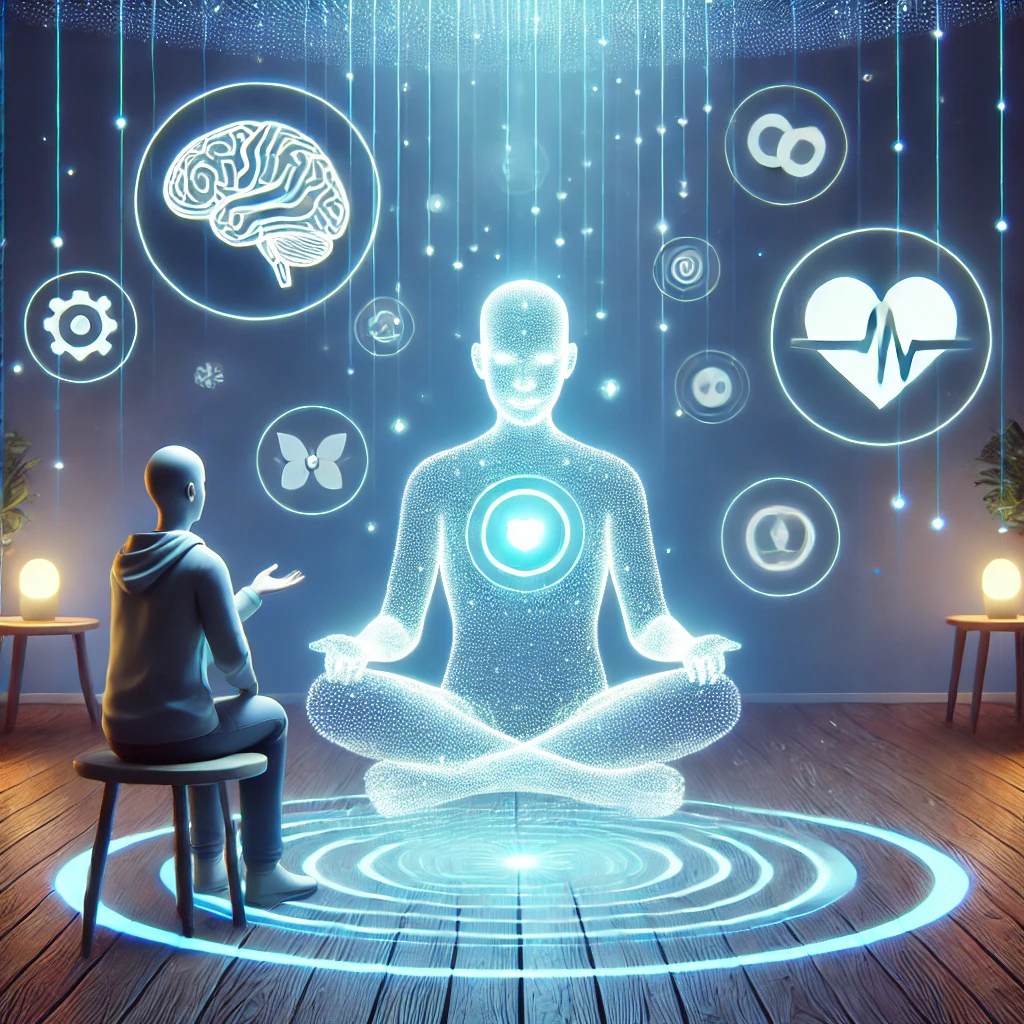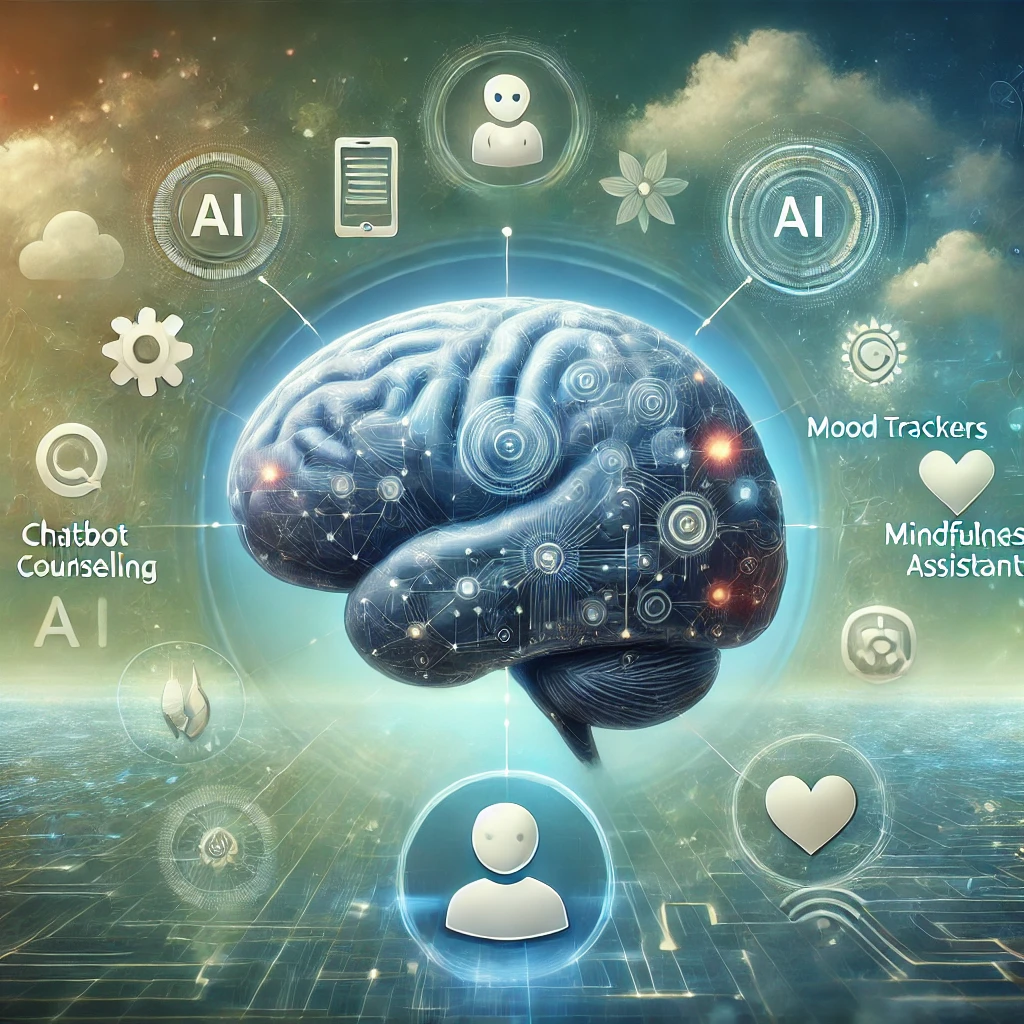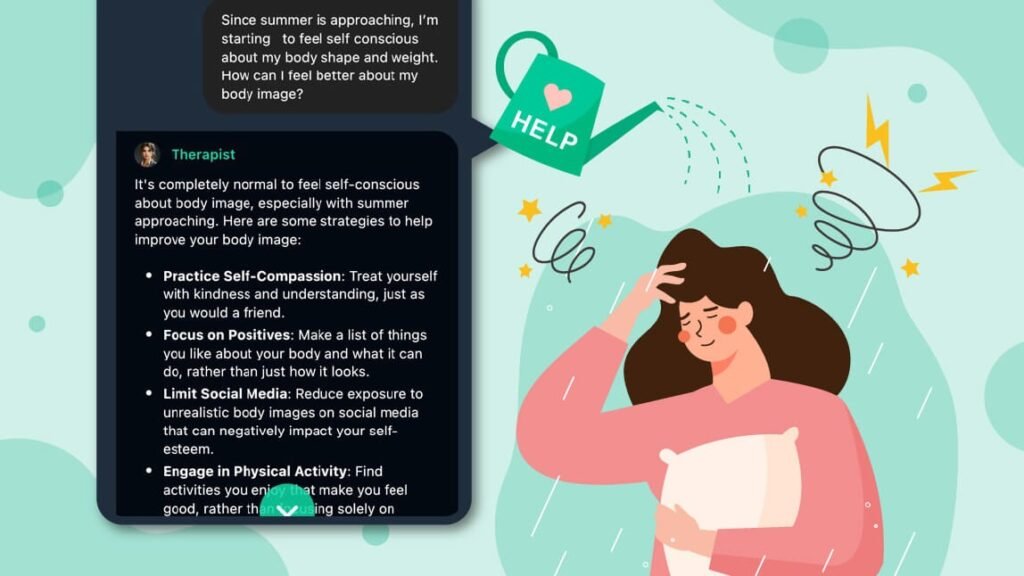
Best AI-Powered Therapy Apps for Mental Health Support
Mental health has become an essential aspect of overall well-being, and the digital age has brought powerful tools to help manage it. Artificial Intelligence (AI) is transforming mental health care, making therapy more accessible, personalized, and affordable. AI-powered therapy apps combine advanced technology with therapeutic principles to offer support anytime, anywhere. In this article, we explore some of the best AI-powered therapy apps available and how they can help improve mental health.
Why AI Therapy Apps Are Becoming Popular

The growing demand for mental health support has led to innovation in digital therapy. Traditional therapy can be costly and may have accessibility challenges. AI-powered therapy apps provide a flexible alternative by:
- Offering on-demand support anytime without scheduling appointments.
- Personalizing therapy based on user responses and emotional needs.
- Reducing stigma by allowing private self-help.
- Tracking progress and offering real-time insights.
These apps combine cognitive behavioral therapy (CBT), mindfulness techniques, mood tracking, and chat-based interactions with AI to make mental health care more approachable.
Top AI-Powered Therapy Apps
Here’s a closer look at some of the best AI-powered therapy apps available today:
1. Woebot
Overview: Woebot is one of the most popular AI mental health apps. It uses a conversational chatbot to provide daily emotional support, using techniques rooted in CBT.
Features:
- AI-driven conversation for emotional check-ins.
- Mood tracking and progress reports.
- Evidence-based mental health strategies.
- Friendly, approachable chatbot interface.
Why it’s great: Woebot makes therapy feel like talking to a friend, helping users process emotions and reduce stress in a non-intimidating way.
2. Wysa
Overview: Wysa offers a chatbot-based AI therapy system, blending self-help techniques with professional human support when needed.
Features:
- AI chatbot for mood tracking and cognitive restructuring.
- Self-help tools for stress, anxiety, and depression.
- Access to licensed therapists for deeper support.
- Privacy-focused design.
Why it’s great: Wysa’s blend of AI and human therapy ensures personalized and safe mental health support.
3. Youper

Overview: Youper focuses on emotional health using AI-powered conversations combined with mood tracking.
Features:
- AI-guided conversations to identify emotions.
- Personal mood tracking over time.
- Guided meditations and mindfulness exercises.
- Insights into mental health patterns.
Why it’s great: Youper’s AI-driven approach helps users better understand their emotions and build emotional resilience.
4. Replika
Overview: Replika is a conversational AI designed to be a friend, therapist, and journal all in one.
Features:
- Conversational AI that learns from interactions.
- Emotional support with mood tracking.
- Creative activities to reduce stress.
- Personalization based on user interaction.
Why it’s great: Replika offers a unique, deeply personal experience that feels more like human interaction than traditional apps.
5. Talkspace (AI-enhanced features)

Overview: Talkspace offers professional therapy with AI-powered features that streamline the process of communication and progress tracking.
Features:
- Chat and video therapy sessions.
- AI-assisted matching with therapists.
- Progress tracking and personalized suggestions.
- 24/7 messaging support.
Why it’s great: Talkspace bridges the gap between AI and licensed therapy, offering human expertise alongside technology.
Benefits of Using AI-Powered Therapy Apps
Using AI-powered therapy apps offers unique advantages:
1. Accessibility
These apps are available 24/7, removing barriers like waiting times or geographic limitations.
2. Privacy
Many users feel more comfortable sharing feelings with an AI chatbot, reducing stigma and allowing open expression.
3. Affordability
AI therapy apps tend to cost less than traditional therapy, making mental health support more financially accessible.
4. Personalization
AI analyzes user behavior and adapts the therapeutic approach accordingly, offering a more personalized experience.
5. Progress Tracking
Many apps provide mood tracking and insights, helping users understand patterns and triggers.
Things to Consider Before Choosing an AI Therapy App
While AI-powered therapy apps are promising, it’s important to consider:
- App credibility: Choose apps backed by research and professional therapists.
- Privacy policies: Ensure the app protects your personal data.
- Limitations: AI is not a replacement for professional help in severe mental health conditions.
- Human support: Some apps offer a hybrid approach with access to real therapists when needed.
The Future of AI in Mental Health

AI-powered therapy apps are evolving rapidly. Future advancements may include:
- Greater emotional intelligence in AI.
- Enhanced personalization through machine learning.
- Integration with wearable devices for real-time mental health tracking.
- Expanded multilingual support for global accessibility.
These developments will make mental health care even more responsive, accessible, and effective.
Final Thoughts
AI-powered therapy apps are transforming the way we access mental health support. They provide flexibility, privacy, and affordability without sacrificing quality. While they aren’t a substitute for traditional therapy in serious cases, they can be a valuable part of a mental health toolkit. Whether it’s managing daily stress, practicing mindfulness, or receiving emotional support, these apps bring mental health care to your fingertips.
